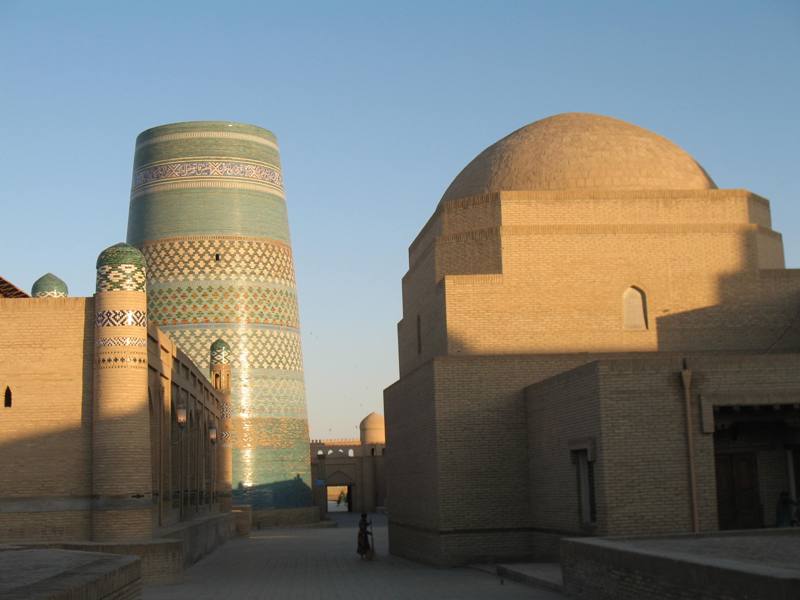Khiva: The Museum City
Khiva
Uzbekistan
June 5, 2009
Dear Family and Friends,
Today's vocabulary word is the Persian word "pharsakh". (The word sounds suspiciously like the Hebrew "parashah" - the weekly portion of the Bible that is read in synagogue every Saturday.)
A pharsakh (pronounced farshach) is a unit of distance about 5km or about 3 miles. A Genghis Khan messenger on horseback, with stops, could travel 50 pharsakh - 250km (150 miles) in one day across the sands of the Kara Kum (Black Sands) Desert. A camel caravan can travel 160 kilometers (96 miles).
The distance from Bukhara to Khiva, my next stop on the Great Silk Road, is 470 kilometers (282 miles). It would take the messenger three days; the caravan five days. On a proper highway, my driver and I do it in about six hours, with stops.
Who can resist the stops? Under a cloudless sky, with a charm of its own, the flat, bleak, scrub-mottled desert is interspersed with herds of goats, a yurt camp or two, and endless tracts of cotton plants. Finally, a long, narrow reservoir that feeds the cotton - a major commodity in this part of the world
Agriculture and human settlement go back four, perhaps six millennia in this area. Legend has it that Khiva was founded by Noah's son, Shem. By the 8th Century, Khiva was a trading post. In 1592, Khiva became the capital of Khorezem. The history of Khiva goes on with conquests by the Persians and later the Russians. Fortunately, the old city is preserved in its entirety. *
From the Shaherezada Khiva Hotel within the walls of the old city, it's a short walk to all the sites of this museum-city. At sun-up and in the evening, from street-level and from the roof tops, the walls and gates, the mosques, medressas and minarets, the stone-paved alleys and markets are a feast for my camera lens.
Outside the walls, during one of my strolls to nowhere, even the hardware market is a welcoming attraction. In the open plaza of the old city, two weddings are celebrated with music and energetic, traditional dancing.
The Shaherezada Hotel itself is a very special place. All of the furniture is hand carved by the owner: beds, headboards, chairs, enormous wall cabinets filled with porcelain and large dining-room tables spread with equally large breakfasts.
One evening, instead of a big dinner somewhere, I just wanted a snack. So I asked the hotel manager if I could have a "snack. "Snack"? She tried to figure out what I meant by "snack". Finally she asked, "Picnic?" "Da! Da!" I answered, "Picnic!"
Out came the picnic: large, round Samarkand-style bread torn into triangular pieces, tomato and cucumber salad, cheese slices, meat patties, and a bowl of vegetable soup from the family kitchen. And all of the usual items: bowls of peanuts, almonds, raisins, dried apricots, chocolate cookies, butter cookies and of course, green tea.
Small portions of everything are served with a very large portion of warm and gracious hospitality. Picnic, indeed!
Jan
* "Central Asia." Lonely Planet. 2007. pg 252.

